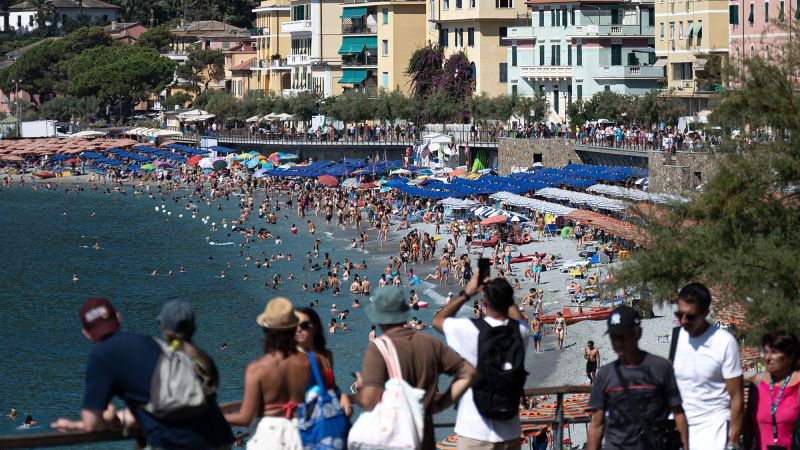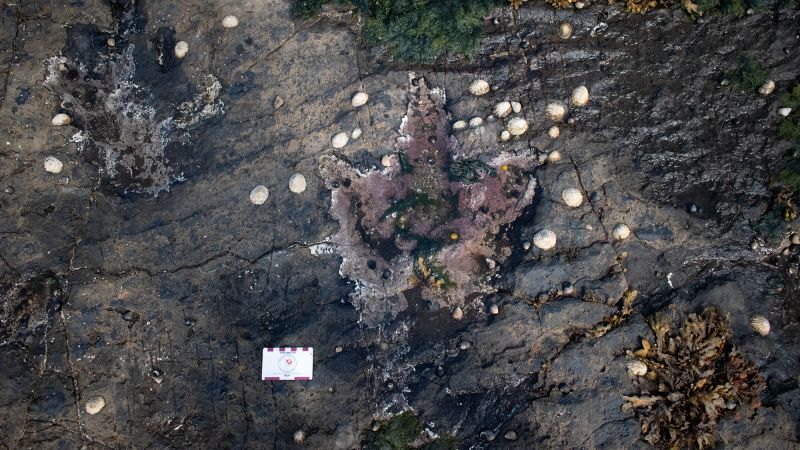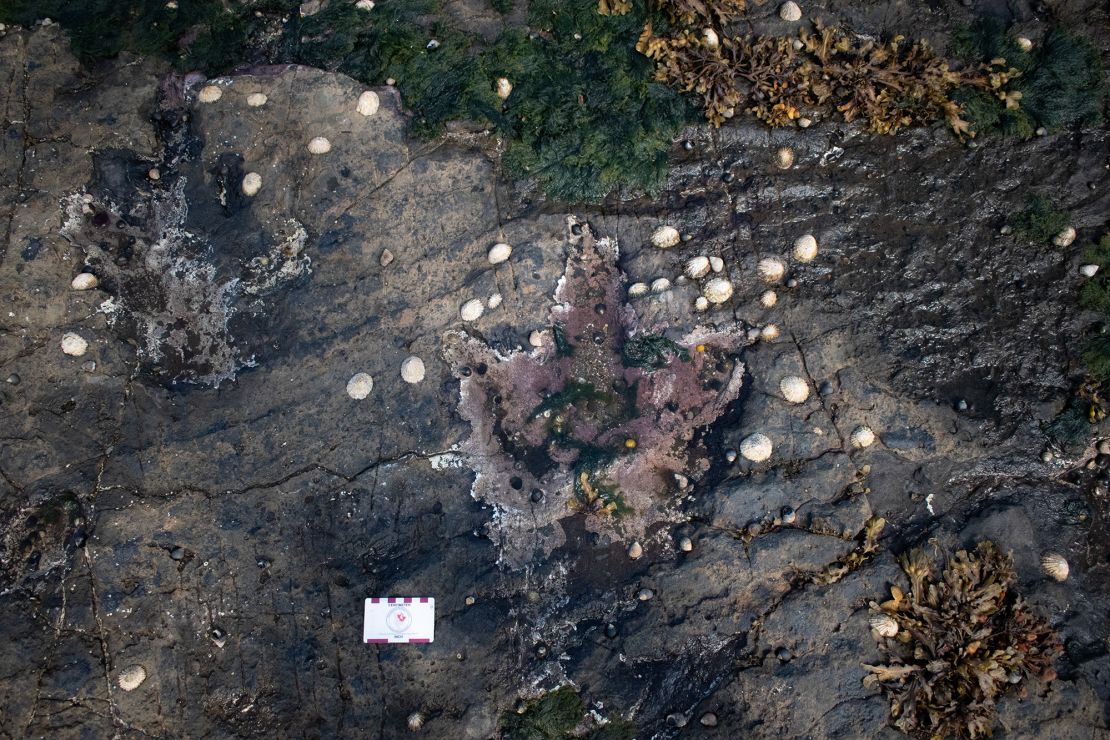For travel tips, recipes and more insight on Italian culture, sign up for CNN’s Unlocking Italy newsletter. This eight-part guide will have you packing your bags in no time.
Rome
CNN
—
A great-grandparent or even a great-great grandparent from Italy used to be all it took to guarantee Italian citizenship. A surprise decree has now changed all that, making it much harder for those with Italian ancestry to use blood line as a pathway to become Italian.
On March 28, the Italian government tightened regulations for claiming citizenship by jus sanguinis, or descendent blood line, effective immediately. The law will go to parliament to be ratified in 60 days, and some changes could be introduced, but for the moment new applications for citizenship must meet new requirements.
The sudden change affects thousands of people all over the world hoping for or preparing to obtain an Italian passport, which ranks third in the world for visa-free or visa-on-arrival travel, according to the Henley Passport Index, making it one of the most coveted and, until now, easiest to acquire.
Under the new regulations, applicants must have at least one Italian parent or grandparent to apply under jus sanguinis. They must also demonstrate Italian language proficiency, which was previously only needed for naturalization through residency or marriage. The proficiency test is a five-part state exam held several times a year, or a higher level equivalency test for those not living in Italy.
At the moment applicants do not have to be currently living in Italy, but do need to have previously lived in the country for three years to be eligible.
Previously, anyone with an Italian ancestor who was alive after March 17, 1861, when the Kingdom of Italy was created, qualified for citizenship, a process that takes about two years with expenses ranging from the cost of notarizing and translating documents to to thousands of dollars to hire companies to do all the legwork.
That meant that even if one’s parents and grandparents did not obtain citizenship, people could still apply based on a great-grandparent or a generation even further back.
The decree, published in Italy’s official gazette of laws on March 28 is meant to crack down on “abusers” who become Italian as a “novelty” or to ease travel restrictions, according to Italy’s foreign minister Antonio Tajani.
“Being an Italian citizen is a serious matter, the granting of citizenship is a serious matter,” Tajani said Friday. “Unfortunately over the years there have been abuses and requests for citizenship that went a bit beyond the true interest in our country.”
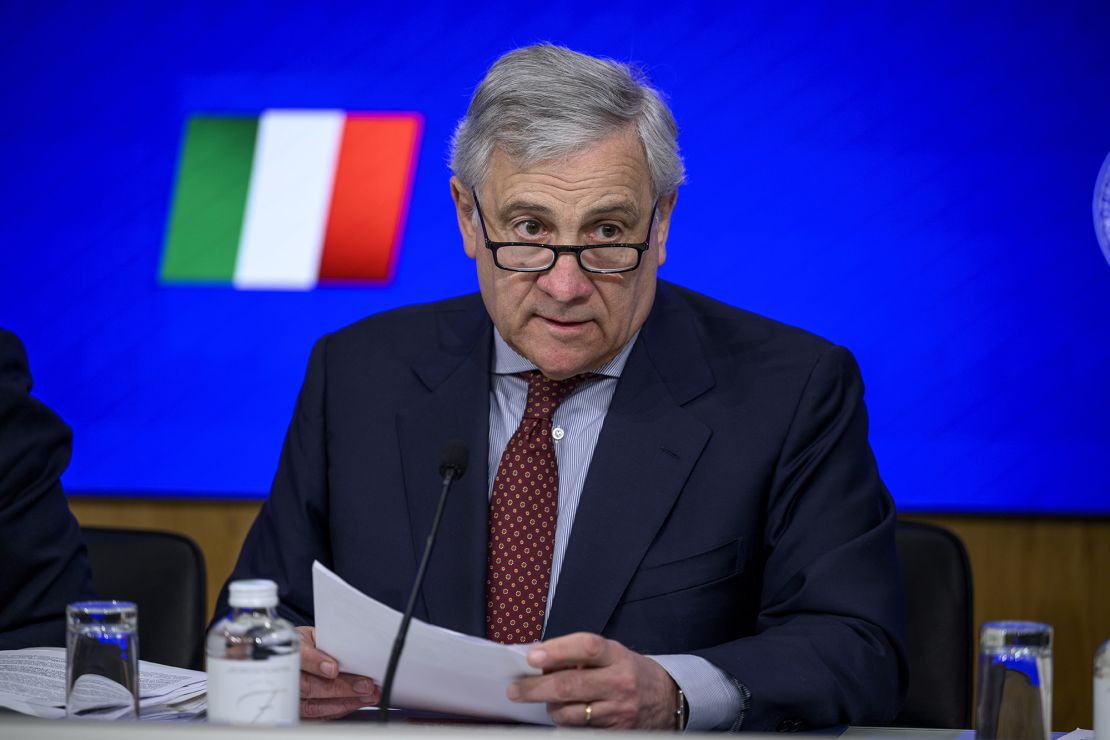
Between 2014 and 2024, the number of Italian citizens residing abroad increased by 40%, from 4.6 million to 6.4 million, mostly in Argentina and Brazil, the foreign ministry said. The Italian consulate in Argentina processed 30,000 applications in 2024, up by 10,000 from the previous year. And in Brazil, consulate officials processed 20,000 requests in 2024, up from 14,000 in 2023, the ministry said.
Most of those people have no direct contact with the country, do not pay taxes in Italy, and do not vote, Tajani said. He added that the reform was necessary because “citizenship cannot be automatic for those who have an ancestor who emigrated centuries ago, without any cultural or linguistic ties to the country.”
Italy does not allow citizenship based on jus soli or birthright, meaning even people born in Italy are not automatically granted citizenship and must instead wait 18 years to apply and prove that they lived legally in the country for 10 of those.
The new regulation does not impact any of the 60,000 applications currently pending in consulates across the world, but it does impact how those who do qualify for citizenship apply in the future.
Consulates will no longer process applications, which will be centralized and processed online via the national government in Italy, and which will require an in-person interview. Consulates around the world have cancelled many blood line citizenship appointments scheduled after March 28, according to the Foreign Ministry’s office.
Samantha Wilson, CEO of Smart Move Italy, which helps facilitate citizenship applications, says she is telling her clients who are pursuing citizenship by descent not to give up — at least not yet.
“The Tajani Decree has created fear, confusion, and for some, a sense of loss,” she told CNN. “This decree, in our view, is constitutionally weak. It was rushed through as an emergency measure, bypassing the normal democratic process, and we fully expect it to be challenged — by the courts, by the legal community, and by us.”
She says one of her clients who had been planning to move to Italy to apply in person on April 1 has now canceled her trip because of the uncertainty. Another of her clients in her property division just closed on a property in Italy, she says, but now doesn’t want to buy it since she won’t be able to get her Italian citizenship under the new rules. She has already signed contracts and is obligated by law to carry on with the purchase, says Wilson.
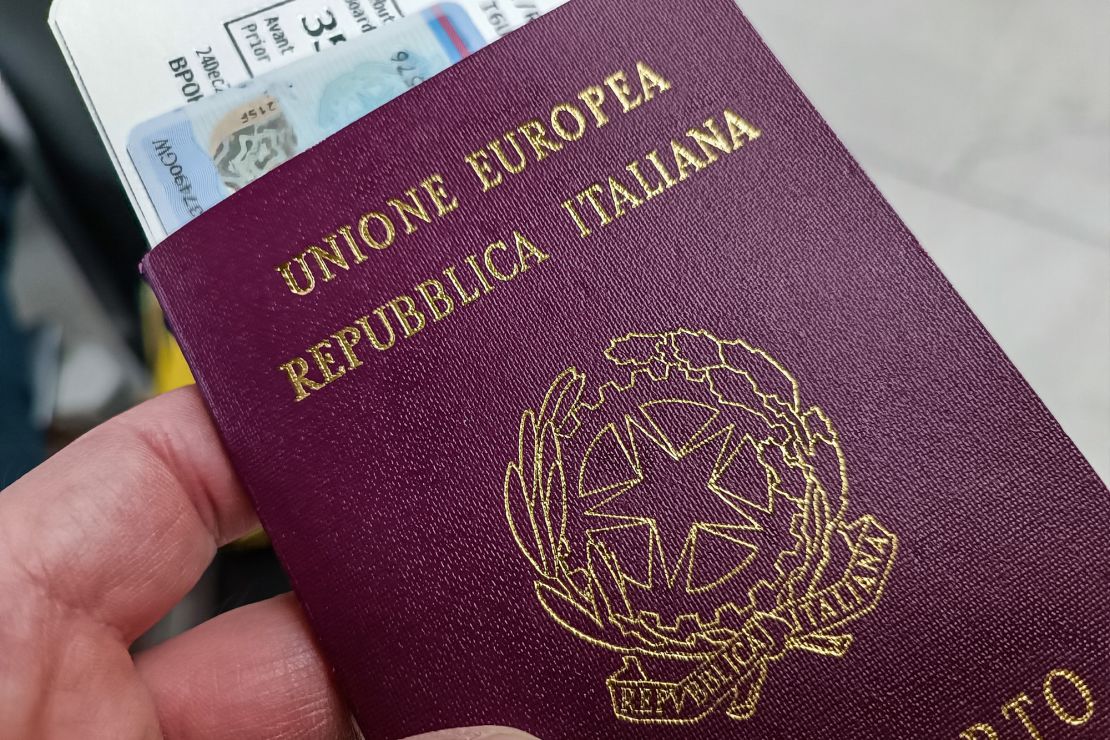
The law also extends to Italian citizens who were not born in Italy. They can now only pass on citizenship to children born outside of Italy if they have lived in Italy for two consecutive years.
Additionally, Italian citizens with dual nationality will lose their Italian citizenship if they “don’t engage” by paying taxes, voting and renewing their passports and ID cards. That means people who were granted citizenship but don’t ever come to Italy may not be able to keep it, according to the decree as it is currently written.
Those who marry an Italian must live in Italy for at least two years to qualify for citizenship through marriage. And the cost to apply has doubled, from 300 to 600 euros (from $324 to $648).
Italians who were born in Italy, but now live abroad, can still pass their citizenship on to their own children, but must register the birth in Italy.
“For those who are applying through court and are ready, we’re doing everything we can to file their cases before the decree is ratified. That short window could make a difference if transitional provisions are expanded when the law is converted,” Wilson told CNN.
“For those who are not yet ready to file, the only option now is to wait — for Parliament’s decision within the 60-day window, for the Constitutional Court’s hearing in June, and beyond that, for the outcomes of what will likely be years of court challenges. We’ll be filing many of them.”
CNN interviewed one person, who did not want to be named in case it hurts their case, who has just moved to Rome in March in the hope of getting citizenship from a great-grandmother, who moved to South America during World War II.
Under the new regulations, they do not qualify even though their father, who was born in South America, has Italian citizenship. They’re hoping to find a lawyer who can act as a guide through the complicated process. “I have all the paperwork, everything translated, notarized, and ready for my appointment in mid-April,” they told CNN. “If they don’t cancel it, I will have a chance, but I feel like I’ve made the worst mistake of my life.”
CNN also reached an American family of seven en route to Italy aboard a cruise ship to pursue citizenship based on a great-grandparent who emigrated to the US but never became a US citizen.
The family, which includes teenagers and young adults, signed a long-term lease to establish residency and have booked appointments with the local community in Italy to apply for permits to stay based on their quest for citizenship — requirements for applying for citizenship prior to March 28.
They also say they spent tens of thousands of dollars to translate and notarize all the documents relating to the great grandfather. Now, under the new regulations, they no longer qualify and have no idea what obstacles they will face once they arrive since everything they plan to do is based on requirements no longer recognized.
“We were following Italian law, and we were following the procedures at the Italian government and uprooted our whole lives to move to Italy under the laws at the time when we got on the ship March 23,” they told CNN. “Making this change with no notice at all has stranded a bunch of families in Italy who now don’t have a legal standing and has essentially made us homeless in the middle of the Atlantic on a cruise ship.”
Salvatore Livreri, an Italian who works as an orthodontist in South Carolina, told CNN that he feels the new law isn’t carefully thought out.
“This not only crushes the dreams of the children of the Italian diaspora who seek recognition of citizenship in order to return to their ancestral homeland, but also strips the rights of citizens such as myself who have children abroad to transmit my Italian citizenship to them,” he told CNN after posting his thoughts on an online community for Italian citizens abroad.
“It creates a two-tier caste system whereby some citizens can transmit their citizenship to their children, but second-class citizens like myself cannot do so. For generations, Italian culture has endured because of the strength of family ties. These ties are in the blood. Italians have always known this.”

